🦎 Bearded Dragon Care Sheet (Beginner-Friendly Guide)
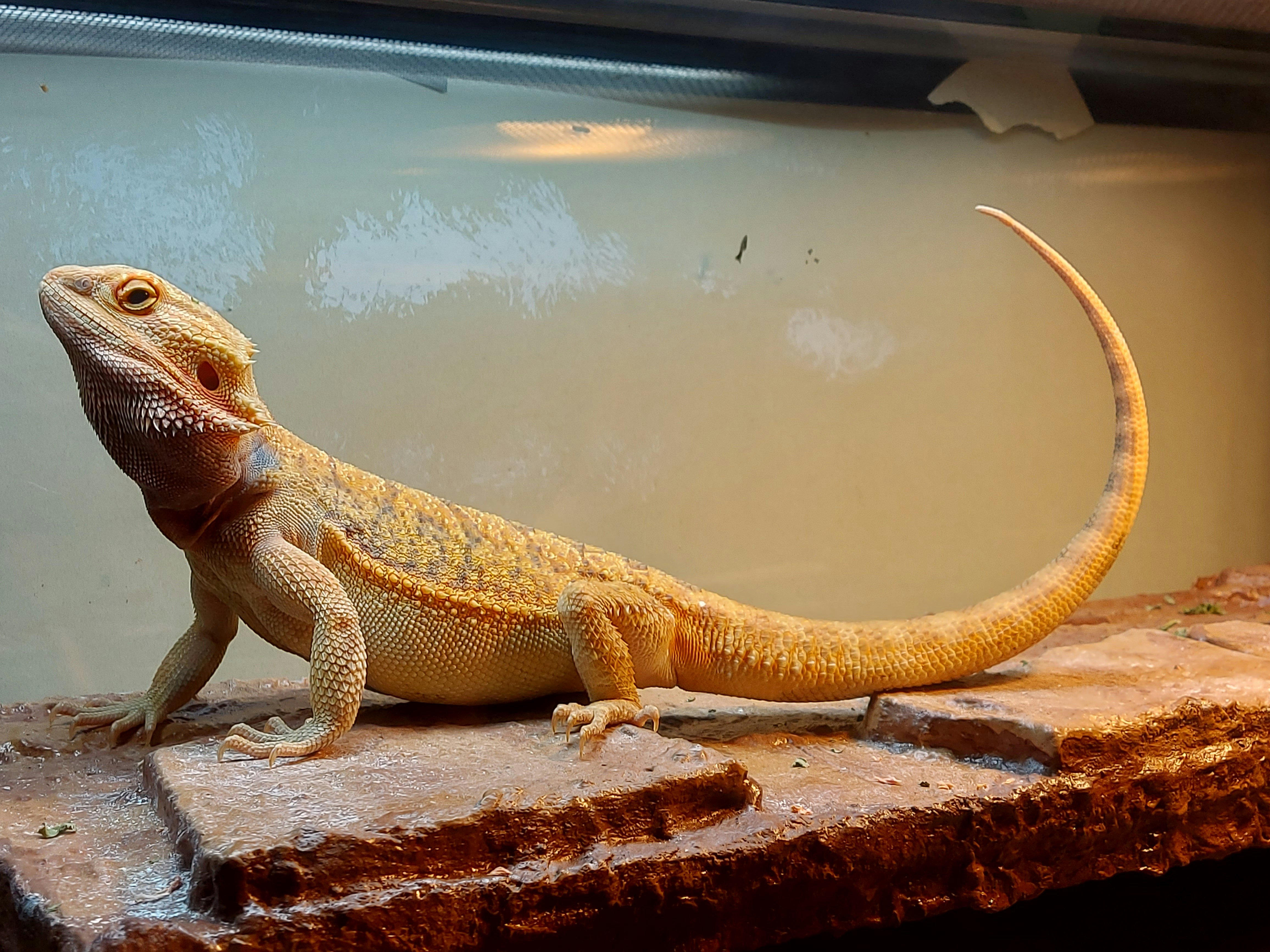
Welcome to the fascinating world of reptiles!
If you're new to keeping reptiles, the bearded dragon is one of the best species to start with. They're friendly, hardy, and full of personality. This care sheet will walk you through everything you need to know to keep your beardie happy and healthy.
📌 Basic Information
- Common Name: Bearded Dragon
- Scientific Name: Pogona vitticeps
- Lifespan: 8–12 years (with proper care)
- Adult Size: 18–24 inches (45–60 cm)
- Origin: Arid regions of Australia
- Temperament: Generally docile and friendly
🏡 Habitat Setup
Creating the right environment is key to your bearded dragon's well-being.
Enclosure
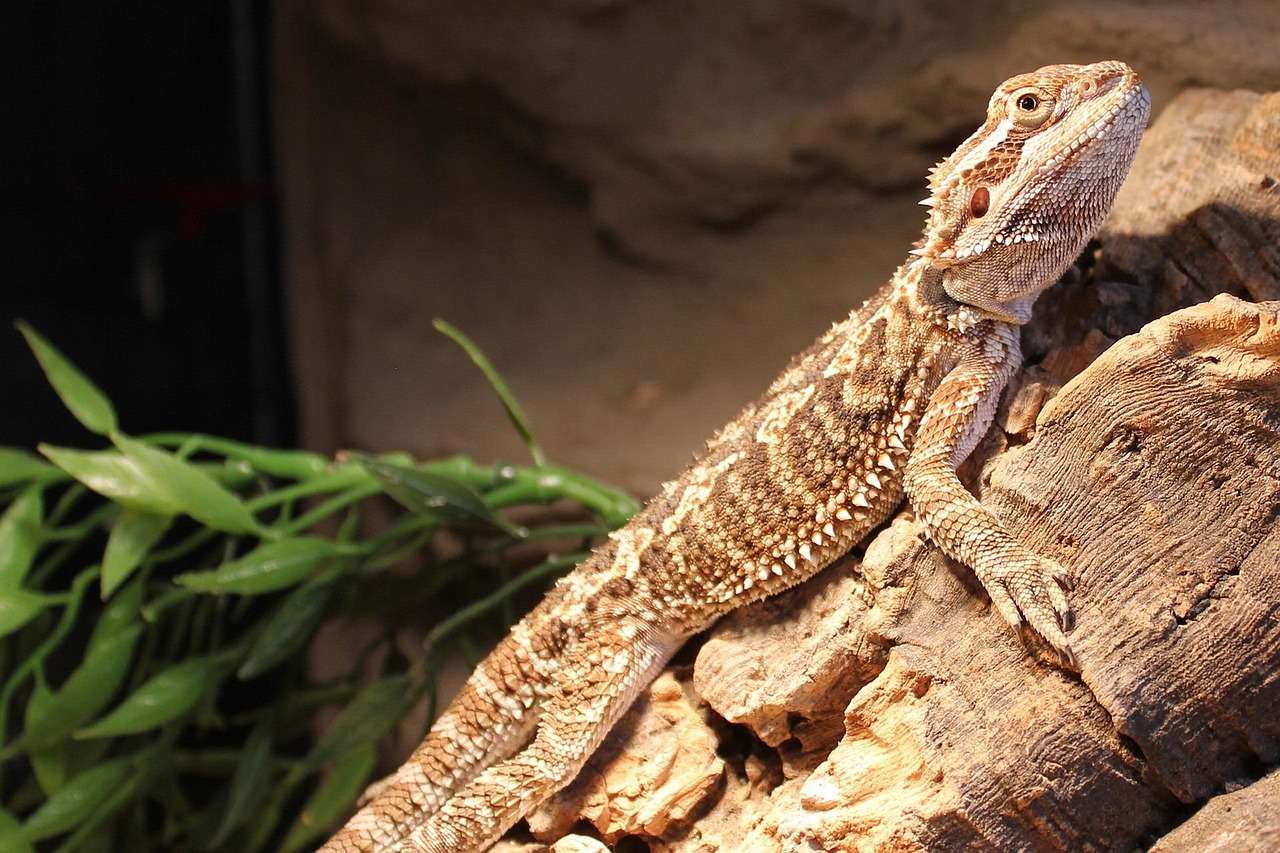
- Tank Size:
- Juvenile: 20–40 gallons
- Adult: Minimum 75 gallons
- Type: Front-opening terrarium or glass tank with screen top for ventilation
Lighting & Heating
- UVB Light: 12 hours/day. Essential for calcium absorption and preventing metabolic bone disease.
- Basking Spot Temp: 95–110°F (35–43°C)
- Cool Side Temp: 75–85°F (24–29°C)
- Night Temp: Should not drop below 65°F (18°C)
Substrate (Floor Material)
- Best for Beginners: Reptile carpet, paper towels, or tile
- Avoid: Loose substrates like sand (risk of impaction)
🥬 Diet & Feeding
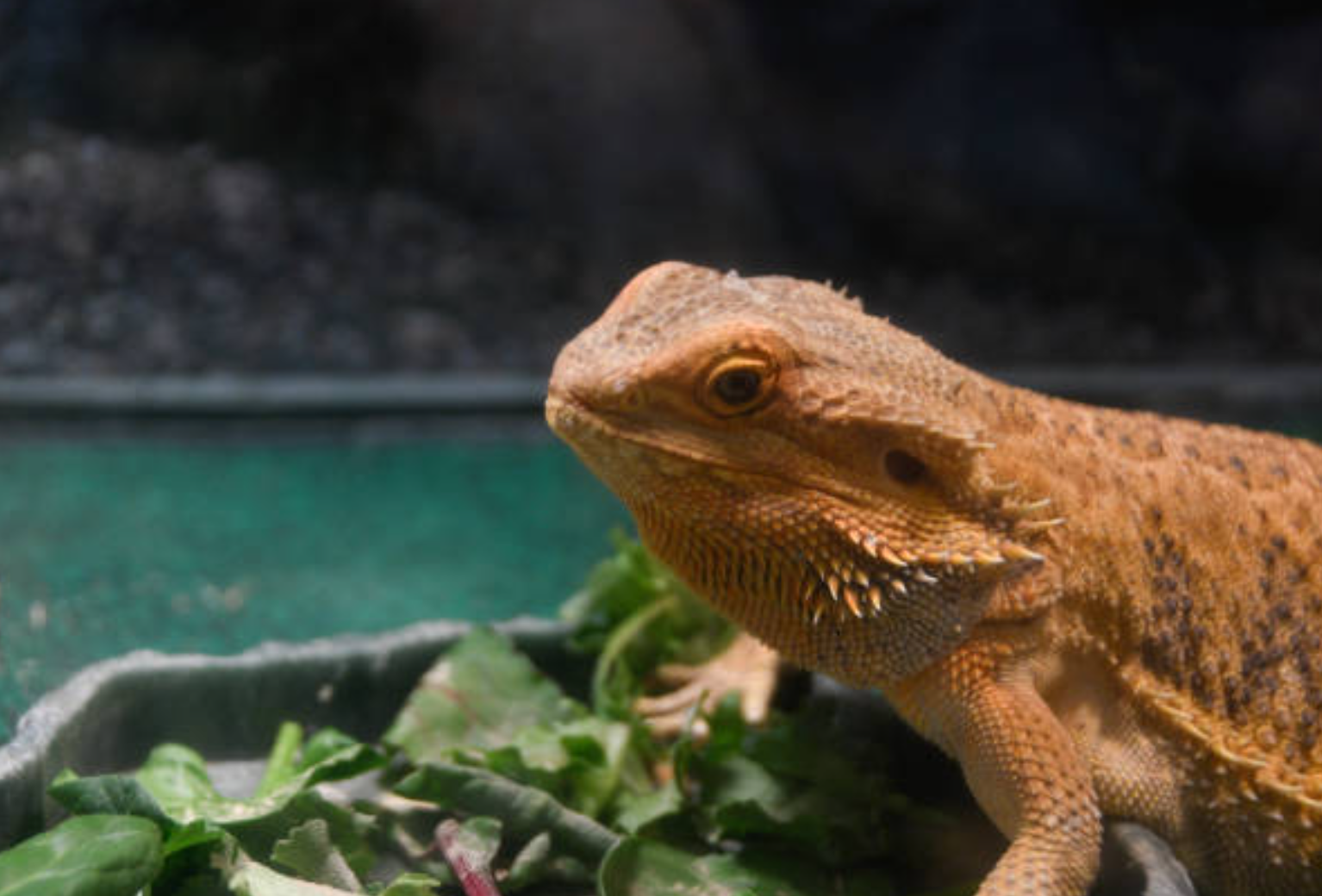
Bearded dragons are omnivores, meaning they eat both insects and vegetables.
Juveniles (up to 12 months)
- Insects: 70% (crickets, dubia roaches)
- Veggies: 30% (collard greens, squash, carrots)
Adults
- Veggies: 70%
- Insects: 30% (offered a few times a week)
Supplements
- Calcium Powder: 4–5x/week
- Multivitamins: 1–2x/week
💡 Always provide fresh water in a shallow dish.
🩺 Health & Maintenance
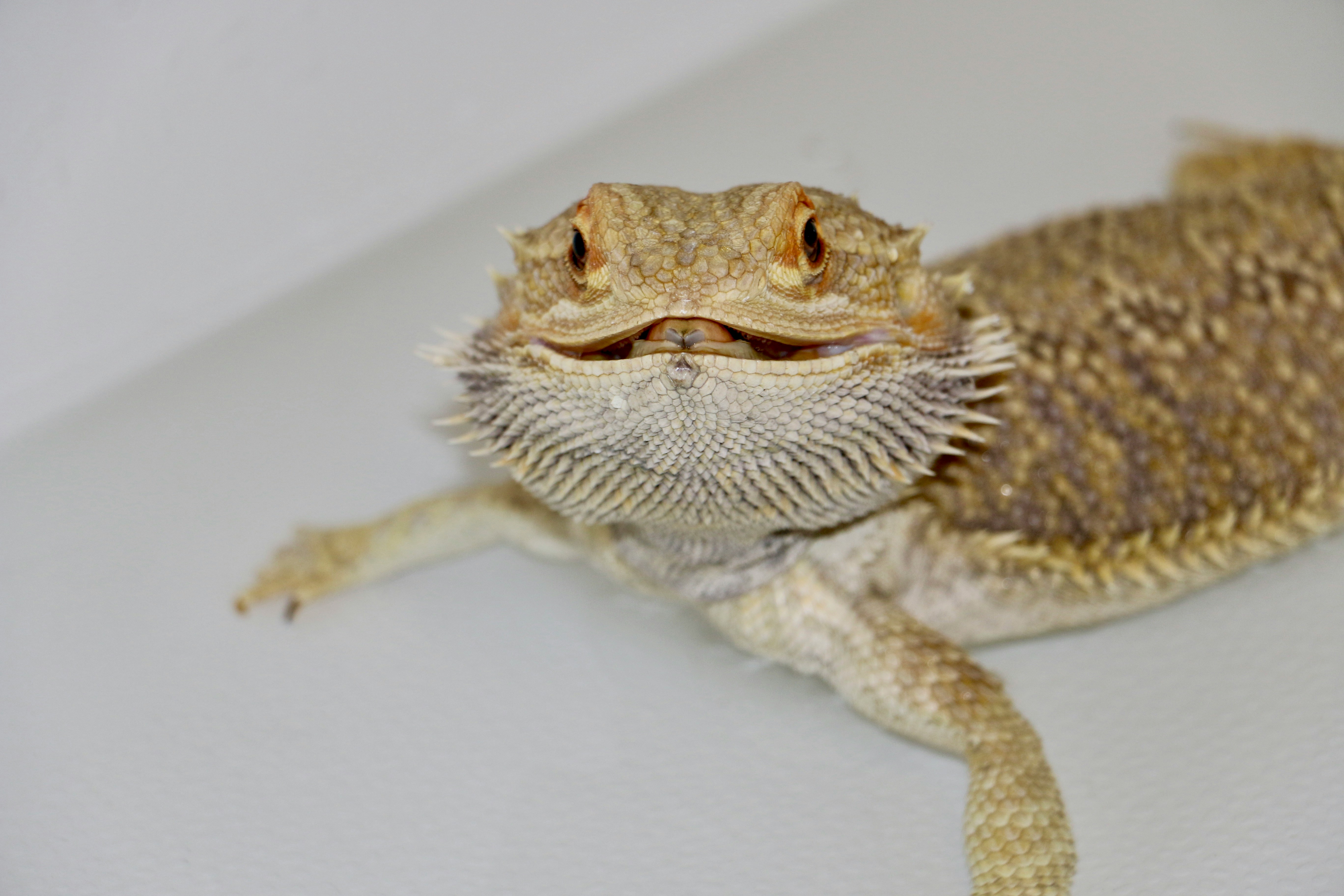
- Shedding: Happens regularly; don’t peel skin off. Provide humidity and warm bath instead.
- Common Health Issues:
- Metabolic Bone Disease (from lack of UVB or calcium)
- Parasites (watch for runny stools or lethargy)
- Vet Visits: Annual reptile vet checkups are recommended
✋ Handling & Socialization
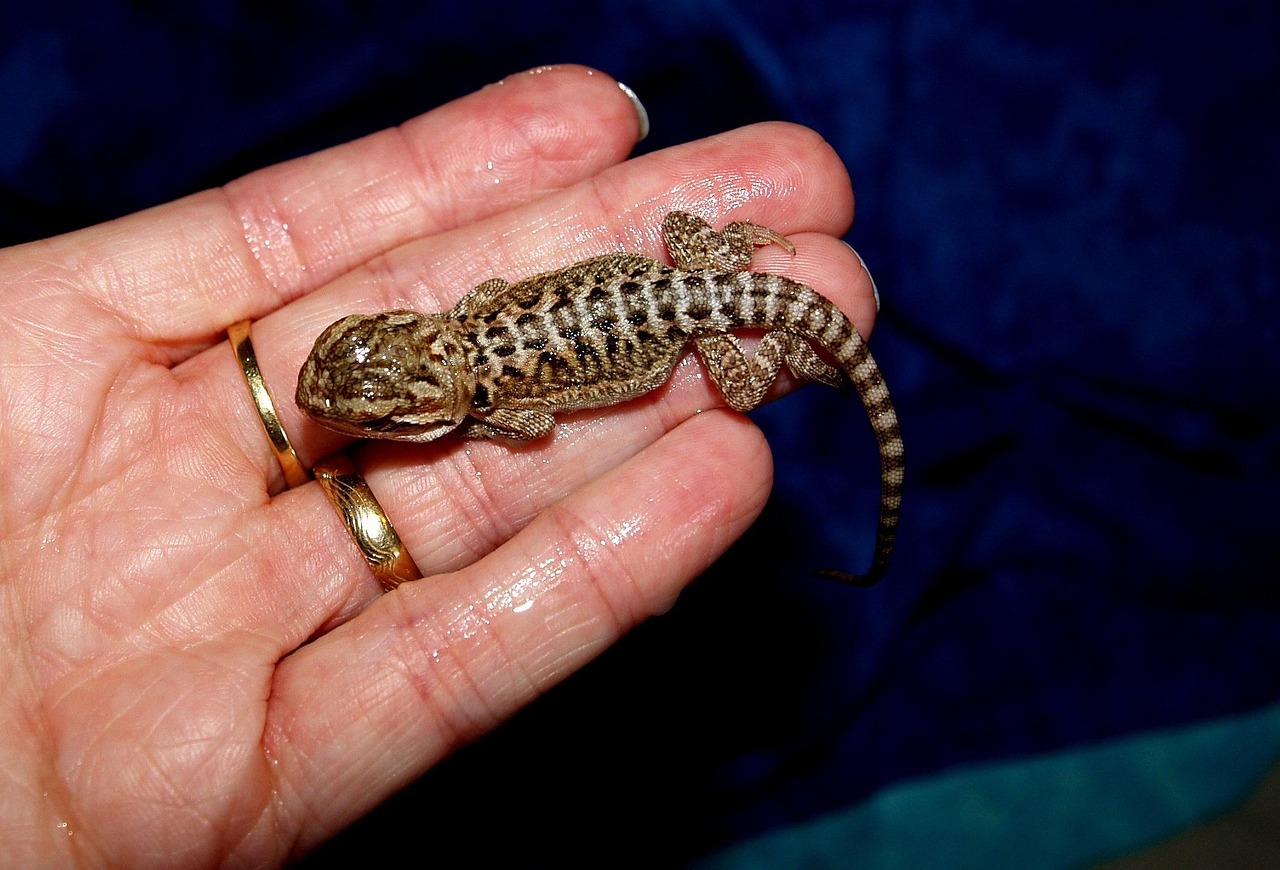
- Start slow: Let your beardie get used to your presence.
- Support the body: Always support their whole body when holding.
- Time: 10–15 minutes a day is great for bonding.
They usually become very calm and enjoy hanging out on shoulders or laps!
❓ Frequently Asked Questions (FAQ)
Q: Can I house two bearded dragons together?
A: Not recommended—especially males. They are territorial and can fight.
Q: How often should I clean the enclosure?
A: Spot-clean daily, deep-clean every 2–4 weeks.
Q: Do they need baths?
A: Optional but helpful—1–2 times a week in lukewarm water can help with hydration and shedding.
✅ Final Tips
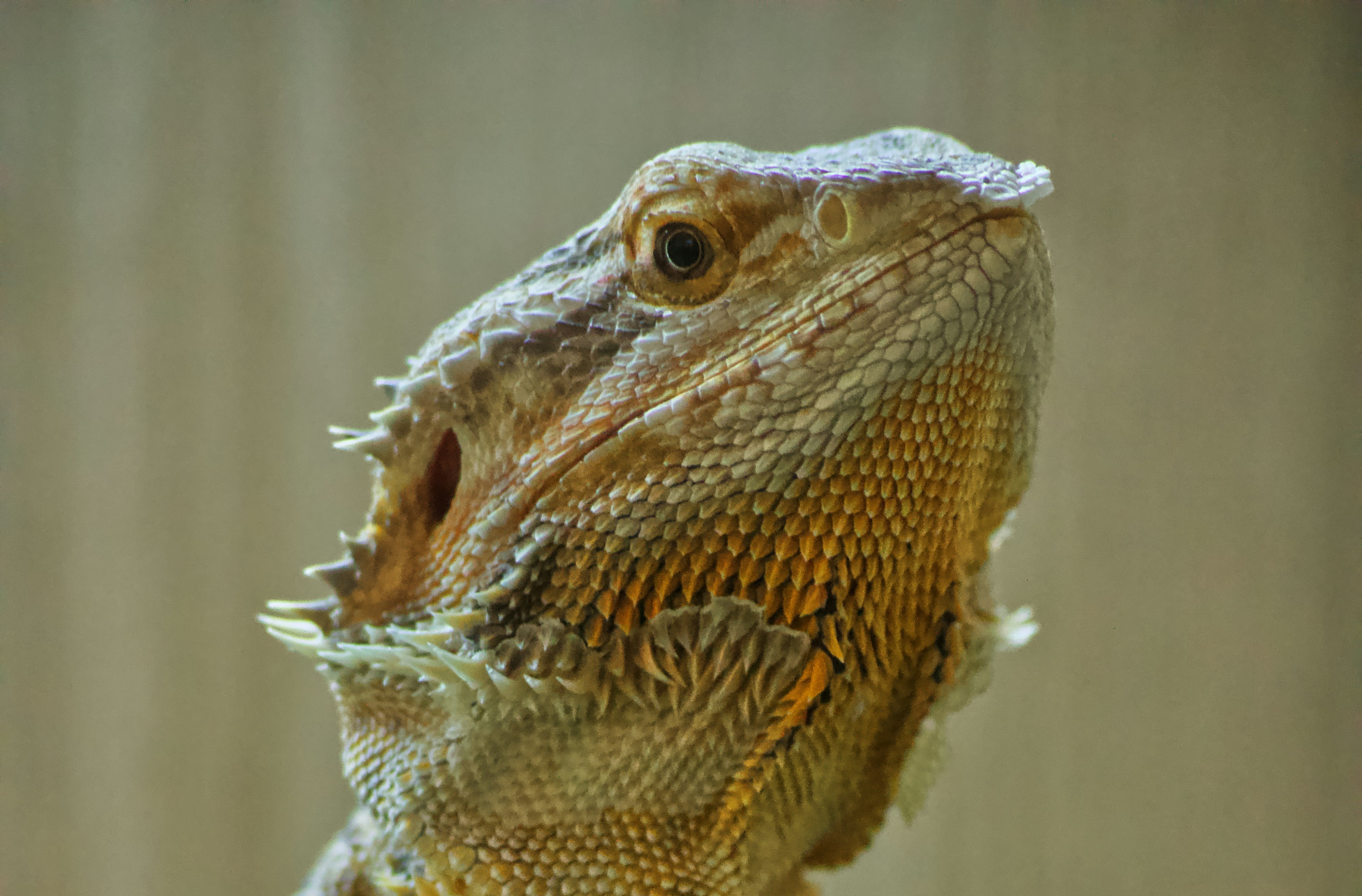
- Monitor temps daily with digital thermometers.
- Replace UVB bulbs every 6 months, even if the light still works.
- Observe your beardie’s behavior—they often "tell" you how they feel!
Thanks for giving your bearded dragon the love and care it deserves.
Happy herping! 🦎✨
